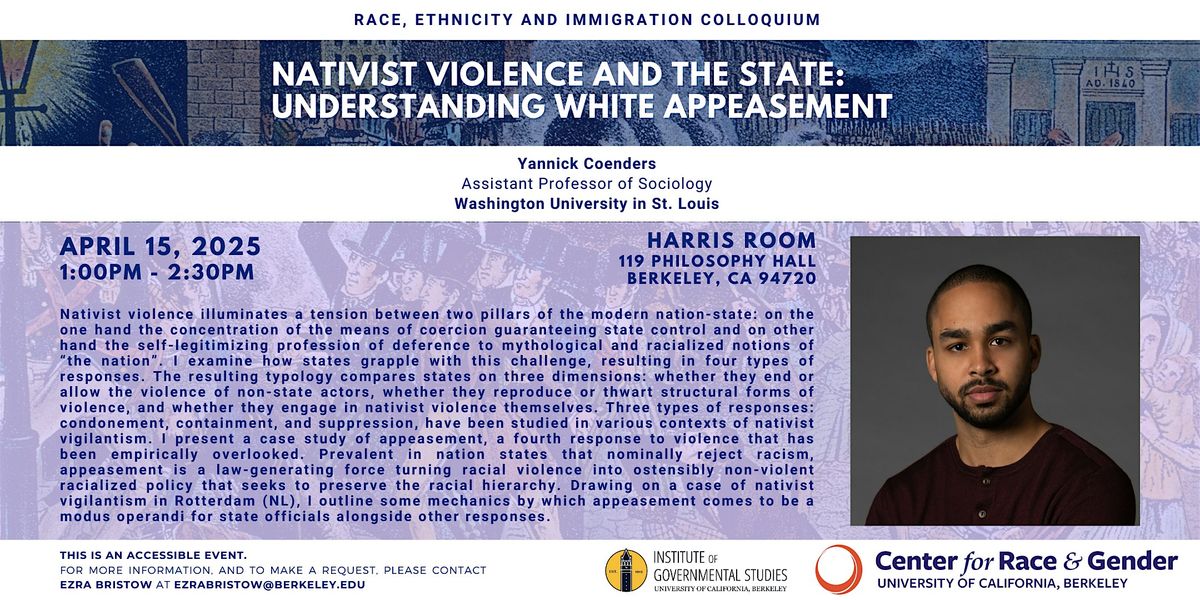
About this Event
Nativist violence illuminates a tension between two pillars of the modern nation-state: on the one hand the concentration of the means of coercion guaranteeing state control and on other hand the self-legitimizing profession of deference to mythological and racialized notions of “the nation”. I examine how states grapple with this challenge, resulting in four types of responses. The resulting typology compares states on three dimensions: whether they end or allow the violence of non-state actors, whether they reproduce or thwart structural forms of violence, and whether they engage in nativist violence themselves. Three types of responses: condonement, containment, and suppression, have been studied in various contexts of nativist vigilantism. I present a case study of appeasement, a fourth response to violence that has been empirically overlooked. Prevalent in nation states that nominally reject racism, appeasement is a law-generating force turning racial violence into ostensibly non-violent racialized policy that seeks to preserve the racial hierarchy. Drawing on a case of nativist vigilantism in Rotterdam (NL), I outline some mechanics by which appeasement comes to be a modus operandi for state officials alongside other responses.
About the Speaker:
Yannick Coenders’ historical work focuses on race, urban space, and colonialism.
His research agenda interrogates how race persists and continues to shape the social life of populations on both sides of the Atlantic, despite the global decline of institutions that brought it into being, such as European colonialism, slavery, and de jure segregation. Coenders’ research has been published in the American Journal of Cultural Sociology, Antipode, Public Culture, and the Journal of Ethnic and Migration Studies.
His current project, Dispersal, poses a question crucial to contemporary urban race governance. Why did Western cities shift from their colonial tradition of concentrating non-white populations to an embrace of residential dispersal in the latter half of the twentieth century? Based on extensive archival research in Birmingham (UK) and Rotterdam (NL), it challenges the mainstream conception that Western cities embraced dispersal to confront racism. Instead, it shows that elites adopted these policies to appease white constituencies, to assimilate non-white populations, and to undermine anti-racist resistance.
This is an accessible event. If you are a disabled person and need reasonable accommodations to participate they will be provided. For more information, and to make a request, please contact Ezra Bristow at [email protected]
Event Venue & Nearby Stays
Harris Room - Institute of Governmental Studies, 119 Philosophy Hall, Berkeley, United States
USD 0.00









